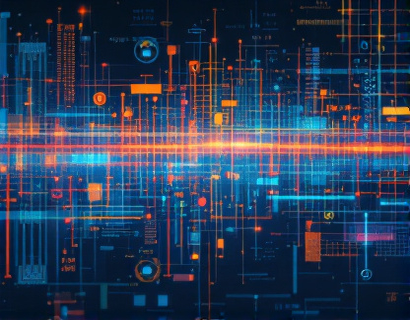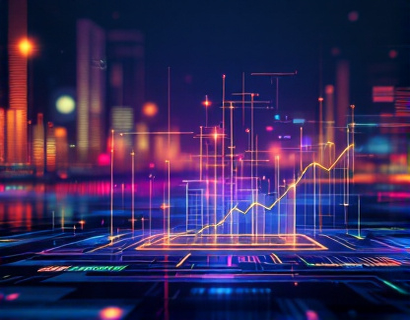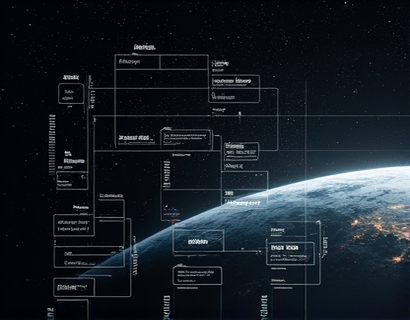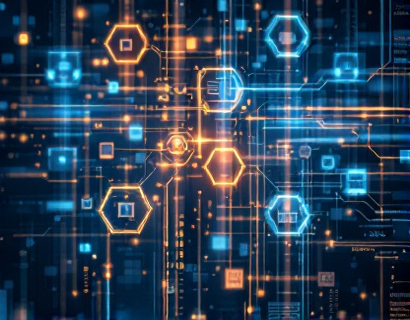Decentralized DAO Management: Leveraging Advanced Software for Enhanced Governance and Data-Driven Insights
In the rapidly evolving landscape of decentralized finance and autonomous organizations, the management of Decentralized Autonomous Organizations (DAOs) has become a critical area of focus. Traditional governance models are being reimagined to embrace the principles of decentralization, transparency, and community involvement. However, the complexity of managing a DAO without central authority poses significant challenges. Advanced software solutions are emerging to address these challenges, offering tools that streamline governance, enhance collaboration, and provide deep analytics. This article delves into the transformative impact of leveraging sophisticated software for DAO management, highlighting how these tools can revolutionize governance and drive sustainable growth through data-driven insights and enhanced transparency.
Understanding DAO Governance Challenges
DAOs operate on blockchain technology, utilizing smart contracts to automate decision-making processes. While this decentralized approach promotes inclusivity and reduces the risk of central points of failure, it also introduces complexities in governance. Key challenges include ensuring effective decision-making, maintaining transparency, and fostering active community participation. Traditional methods of governance often fall short in these areas, leading to inefficiencies and potential conflicts. Advanced software solutions are designed to overcome these hurdles by providing robust tools and features tailored to the unique needs of DAOs.
Streamlining Governance with Advanced Software
One of the primary benefits of using advanced software for DAO management is the streamlining of governance processes. These platforms offer a centralized yet decentralized interface where members can propose, discuss, and vote on various initiatives. The software automates the workflow, from the submission of proposals to the tallying of votes, ensuring that each step is transparent and verifiable. This automation not only reduces the administrative burden but also minimizes the risk of human error, enhancing the overall efficiency of the governance process.
Moreover, advanced software solutions provide a user-friendly interface that demystifies the complexities of blockchain and smart contracts. This accessibility is crucial for fostering broader community involvement. By making governance more approachable, these tools encourage more members to participate actively, thereby strengthening the democratic nature of the DAO. The platform can be configured to suit the specific needs of the organization, allowing for customizable workflows and roles that align with the DAO's unique structure and goals.
Enhancing Collaboration Through Integrated Tools
Collaboration is a cornerstone of successful DAO management. Advanced software platforms integrate various tools to facilitate seamless communication and collaboration among members. Built-in chat and discussion forums enable real-time communication, ensuring that all voices are heard and that decisions are made collectively. These platforms often include features such as task management and project tracking, allowing members to collaborate on specific initiatives and monitor progress in real-time.
Document management is another critical aspect of DAO governance. Advanced software solutions provide secure and transparent document storage and sharing capabilities. Members can upload, edit, and review documents directly within the platform, with version control and audit trails to ensure accountability. This centralized document management system helps maintain organization and ensures that all members have access to the most up-to-date information.
Data-Driven Insights for Informed Decision-Making
One of the most significant advantages of leveraging advanced software for DAO management is the access to deep analytics and data-driven insights. These tools collect and analyze data from various sources, providing a comprehensive view of the DAO's performance and community engagement. Key metrics such as member participation, proposal trends, and voting patterns can be visualized through intuitive dashboards, enabling leaders to make informed decisions based on empirical evidence.
Predictive analytics is another powerful feature offered by these platforms. By analyzing historical data, the software can forecast future trends and potential challenges, allowing DAO leaders to proactively address issues before they escalate. This forward-looking approach is essential for sustainable growth and resilience in the dynamic decentralized ecosystem.
Fostering Transparency and Trust
Transparency is a fundamental principle of DAOs, and advanced software solutions play a crucial role in maintaining this integrity. All governance activities, from proposal submission to voting results, are recorded on the blockchain, ensuring that every action is immutable and verifiable. This level of transparency builds trust among members, as they can independently audit the governance process.
Additionally, advanced software platforms often include features for financial transparency, such as real-time tracking of funds and expenditure reports. This ensures that financial decisions are made openly and responsibly, further enhancing the trust and confidence of community members. The ability to track and analyze financial data in real-time also helps in identifying potential issues and optimizing resource allocation.
Enhancing Security and Compliance
Security is a paramount concern in the decentralized space, and advanced software solutions are designed with robust security measures to protect the DAO from potential threats. These platforms employ best practices in cryptography and security protocols to safeguard sensitive information and ensure the integrity of the governance process. Regular security audits and updates are conducted to stay ahead of emerging threats.
Compliance with regulatory requirements is another critical aspect of DAO management. Advanced software can help ensure that the DAO adheres to relevant laws and regulations by providing tools for compliance monitoring and reporting. This is particularly important as the regulatory landscape for decentralized organizations continues to evolve. By integrating compliance features, the software helps DAOs navigate complex legal environments and avoid potential pitfalls.
Case Studies and Real-World Applications
Several DAOs have successfully implemented advanced software solutions to enhance their governance and operations. One notable example is a decentralized governance platform that utilized a combination of proposal management, voting systems, and analytics tools. The platform saw a significant increase in member participation and a reduction in decision-making time, thanks to the streamlined workflow and intuitive interface. The analytics dashboards provided valuable insights that informed strategic decisions, leading to more sustainable growth.
Another case study involves a community-driven project that used advanced software to manage its financial resources and track expenditures. The real-time financial tracking and transparent reporting features helped build trust among contributors and ensured that funds were used efficiently. The project's success can be attributed, in part, to the enhanced transparency and accountability provided by the software.
Future Trends and Innovations
The landscape of DAO management software is rapidly evolving, with ongoing innovations aimed at addressing emerging challenges and enhancing user experiences. One area of focus is the integration of artificial intelligence (AI) and machine learning (ML) to further automate and optimize governance processes. AI-driven analytics can provide deeper insights and predictive capabilities, enabling DAOs to anticipate and respond to trends more effectively.
Another trend is the development of interoperable platforms that can seamlessly integrate with other blockchain projects and decentralized applications. This interoperability will facilitate more collaborative and interconnected DAOs, fostering a more cohesive decentralized ecosystem. Additionally, user experience (UX) improvements are being prioritized to make these platforms more accessible and user-friendly, ensuring that even those with limited technical expertise can effectively participate in governance.
Conclusion
Advanced software solutions are transforming the way DAOs are managed, offering powerful tools that enhance governance, collaboration, and data-driven decision-making. By streamlining processes, providing deep analytics, and fostering transparency, these platforms enable DAOs to achieve sustainable growth and resilience in the decentralized landscape. As the technology continues to evolve, the potential for even more innovative and effective governance solutions is vast. Embracing these advancements is essential for DAO managers and administrators looking to stay ahead and build thriving, community-driven organizations.










































